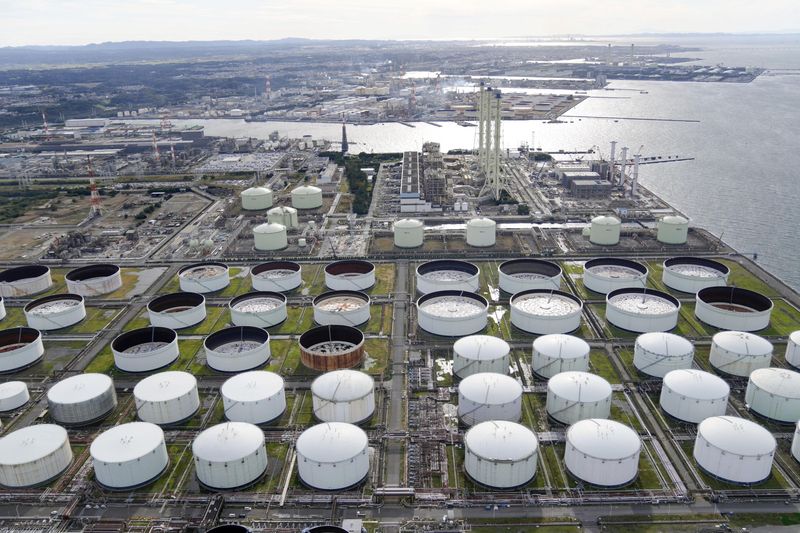HOUSTON (Reuters) – Oil prices fell 2.5% on Wednesday, reversing early gains as traders grew less worried about a supply crunch after government data showed U.S. refiners ramped up output, and as crude futures followed Wall Street lower.
Brent crude futures for July settled down $2.82, or 2.5%, at $109.11 a barrel. U.S. West Texas Intermediate (WTI) crude for June fell $2.81, or 2.5%, to $109.59 a barrel.
Both benchmarks gave up early gains of $2-$3 a barrel following a change in risk sentiment as equity markets fell, said UBS analyst Giovanni Staunovo.
U.S. crude inventories fell by 3.4 million barrels last week, government data showed, an unexpected drawdown, as refiners ramped up output in response to tight product inventories and near-record exports that have forced U.S. diesel and gasoline prices to record levels. [EIA/S]
U.S. gasoline prices fell 5%, two days after touching a record high.
Capacity use on both the East Coast and Gulf Coast was above 95%, putting those refineries close to their highest possible running rates.
“While on the face of it, the report was extraordinarily bullish, they (refiners) are racing to put more refined product on the market… there’s obviously a refiners response,” said John Kilduff, a partner at Again Capital LLC.
The dollar strengthened and global stocks retreated on concerns about economic growth and rising inflation.
Bearish sentiment also followed reports that the United States is planning to relax sanctions against Venezuela and allow Chevron Corp to negotiate oil licenses with state producer PDVSA.
“The perception that we could see some more supply coming Venezuela coming into the market, along with the equity markets, it’s causing some profit taking in a much-needed technical correction in the crude,” said Dennis Kissler, senior vice president for trading at BOK Financial.
The European Union’s failure to persuade Hungary to lift its veto on a proposed embargo on Russian oil was adding price pressure, although some diplomats expect agreement on a phased ban at a summit at the end of May.
Ongoing supply concerns remained supportive. Russian crude output in April fell by nearly 9% from the previous month, an internal OPEC+ report showed on Tuesday, as Western sanctions on Moscow curbed exports.
On the demand side, hopes of further lockdown easing in China boosted expectations of a recovery. Authorities allowed 864 of Shanghai’s financial institutions to resume work, sources said, and China has relaxed some COVID test rules for U.S. and other travelers.
(The story corrects to remove paragraph on Brent discount to WTI as first-month Brent crude futures are for July while first-month WTI futures are for June.)
(Additional reporting by Rowena Edwards in London, Isabel Kua in Singapore; Editing by Marguerita Choy, Jason Neely and David Gregorio)

























